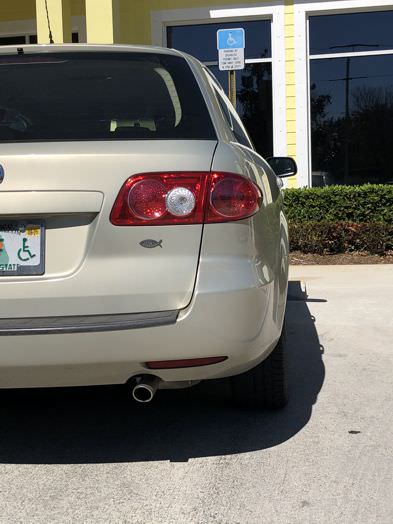
My mouth was dry as I anticipated my name being called to appear before the traffic court magistrate. Even though a law school student at the time, this was no legal clinic assignment. Nope, I was there defending myself. My offense? Parking without a disability placard or license tag on my vehicle in a space reserved for people with disabilities. Hard to believe since I had a placard, but I was ticketed because it wasn’t on display. Thankfully, the magistrate took one look at my 40-inch stature, said “this has to be a mistake,” and dismissed the charge.
Want to subscribe to receive blog updates sign up today!
My experience is ironic given how many people violate disability parking laws without getting caught. So many without a placard or license tag block access aisles to an accessible parking space making it impossible to open doors wide enough to load a wheelchair or to put down a van lift. Others have all kind of excuses for parking in reserved spaces—”I’m just unloading, I’ll only be a few minutes, there’s nowhere else to park.” Some offenders are just plain obnoxious and park wherever they want maybe even to protect their flash car from getting scratched.
But what about the vehicles with placards and license tags driven by people who don’t appear disabled? When there’s no sign of a wheelchair or walker, vigilantes often challenge these drivers for illegal parking. This assumption is prejudicial to those with invisible disabilities that do qualify for disabled parking privileges due to breathing or heart conditions, pain, extreme fatigue, and/or impaired mobility. One woman reported getting two to four comments a week, people yelling at her, leaving notes on her windshield, knocking on her car window, or calling her a liar when she explained she had two prosthetic legs. Should she have pulled up her trouser leg to show them?
Nondisabled drivers who chauffeur a passenger who is eligible for disabled parking are also subjected to dirty looks and inappropriate challenges for lawfully using disabled parking.
So what does this mean for the vigilantes who police disability parking violations? Fair enough to confront those whose vehicle is missing a disabled parking placard or license tag, but unfair to accost a driver who doesn’t look disabled. It’s not our job to question whether the driver is disabled or to assume fraudulent use of a placard. Instead, when fraud is suspected, report the vehicle’s license plate and placard number to the police and/or your state’s Department of Motor Vehicles.
The police are equipped to investigate fraudulent cases where placards are borrowed from someone with a valid permit, issued based on false information, or counterfeited. The penalties for fraud are severe with fines as high as $10,000 for a felony, jail time up to six or 12 months for a misdemeanor, community service, and restrictions on professional licenses.
So how do you handle those you perceive to be illegally parked in spaces reserved for people with disabilities?
For more of my writings, go to https://angelamuirvanetten.com where you can subscribe to my weekly blog, find several retail links to my book—“Pass Me Your Shoes”—and get updates on the Fall 2021 publication of the third book in my dwarfism trilogy, Always An Advocate.

6 replies on “Vigilante Policing of Disabled Parking Spaces”
I find it annoying that everyone uses the handicapped toilet booths. Especially to change clothes or do makeup while I am waiting
Yes, I’ll put that one on my list for future blog posts.
Angela, you raise an interesting point about confronting someone who doesn’t appear outwardly handicapped seen parking in a handicapped zone. Just like the lady with prosthetic legs, people with chronic heart or lung disease can be severely handicapped but appear outwardly fine.
Despite being mobile with prosthetic legs the woman often experiences significant pain associated with their use and needs to limit the time she is on her feet.
I strongly agree with your article 100% and I know many people with hidden or invisible disabilities who have been harassed and treated unfairly because they don’t look like they need it. Also there are many times that people will drive someone who require the use of disability plates and placards. This includes going with the person as well as dropping them off and/or picking them up.
Once I was with my sister and we used my placard and parked in the disability spots with her car at a conference we went to. I was using my manual wheelchair and was inside the building. She went out to her car to get something while I stayed inside. This woman was very rude and loud stating that people without disabilities are not allowed to park there and made some nasty remarks directed at my sister. My sister found me inside and started crying. When she calmed down, we went into the conference room and the woman who made those nasty comments saw my sister with me in my wheelchair. That woman’s face turned red with embarrassment, but she didn’t apologize. That helped my sister feel a little better.
Thank you Erica. Your experience helps people relate to the distress caused to nondisabled drivers lawfully using a parking placard of someone with a disability.